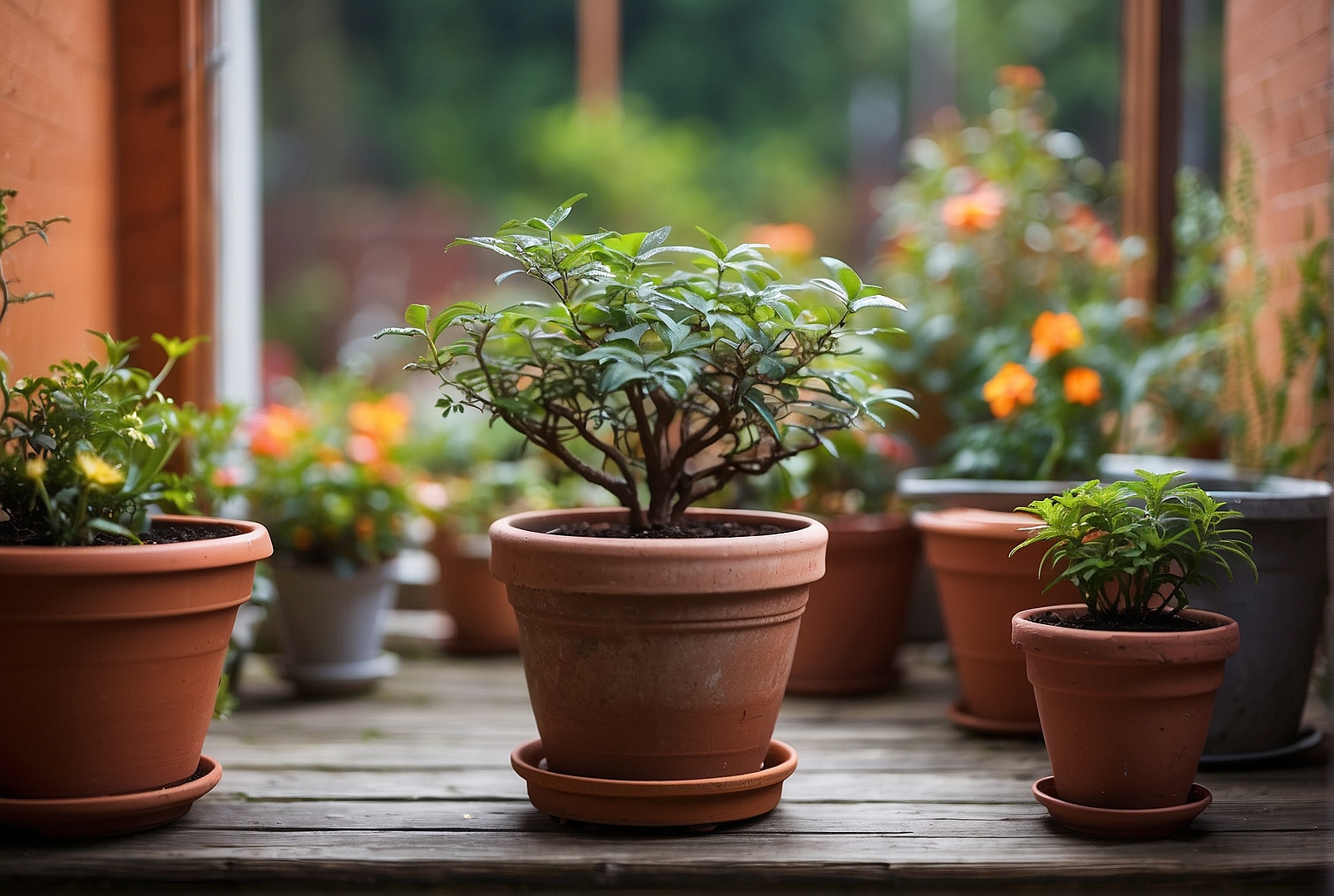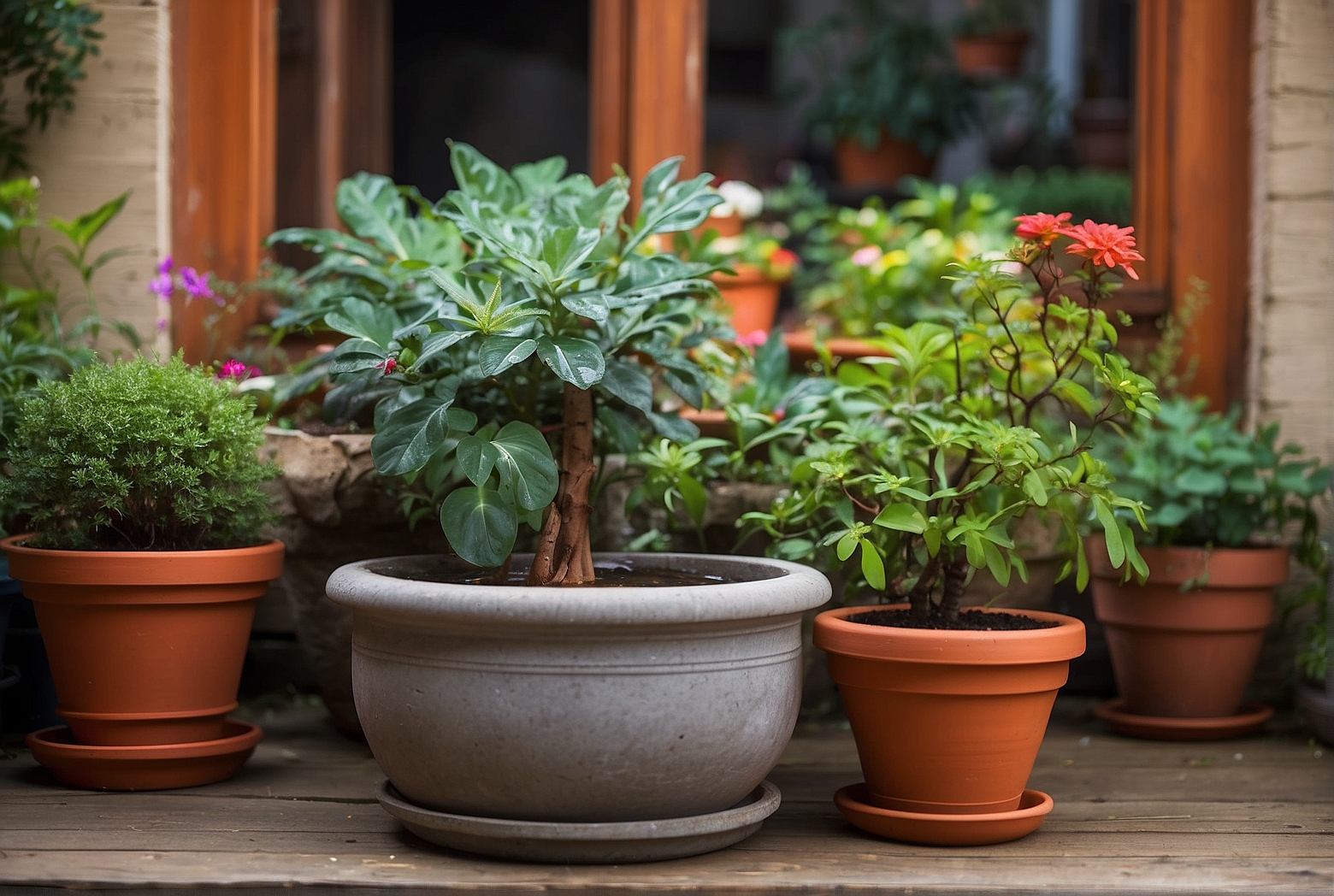If you have potted plants in your garden, you may be wondering if you should water them before a freeze. Freezing temperatures can cause damage to plants, and it is important to take the necessary steps to protect them. Watering your plants before a freeze can help to protect them from the cold temperatures and ensure that they survive the winter. In this article, we will discuss the benefits of watering potted plants before a freeze and provide tips on how to do it properly.
How to Protect Your Potted Plants from a Freeze: Should You Water Beforehand?
When temperatures drop below freezing, it is important to take steps to protect your potted plants from the cold. One of the most important steps is to water your plants before a freeze. This helps to insulate the roots and protect them from the cold.
When watering your plants before a freeze, it is important to use lukewarm water. Cold water can shock the roots and cause damage. Additionally, it is important to water the soil thoroughly. This helps to create a protective layer of moisture around the roots.
It is also important to cover your plants with a frost blanket or other protective covering. This helps to trap the heat from the soil and protect the plants from the cold. If you are using a frost blanket, make sure to secure it around the pot to ensure that it does not blow away in the wind.
Finally, it is important to move your plants indoors if possible. This is the best way to protect them from a freeze. If you cannot move them indoors, make sure to place them in a sheltered area, such as a garage or shed.
In conclusion, it is important to water your plants before a freeze and cover them with a frost blanket or other protective covering. Additionally, it is best to move your plants indoors if possible. Taking these steps will help to protect your potted plants from a freeze.
The Pros and Cons of Watering Potted Plants Before a Freeze
Watering potted plants before a freeze can be beneficial in some cases, but it can also be detrimental in others. It is important to understand the pros and cons of this practice before deciding whether or not to water your plants before a freeze.
The primary benefit of watering potted plants before a freeze is that it can help protect the roots of the plants from the cold. When the soil is wet, it can act as an insulator, helping to keep the roots of the plants warm and protected from the cold. This can be especially beneficial for plants that are sensitive to cold temperatures.
On the other hand, there are some potential drawbacks to watering potted plants before a freeze. If the soil is too wet, it can cause the roots of the plants to rot, which can lead to the death of the plants. Additionally, if the soil is too wet, it can cause the plants to become waterlogged, which can lead to root rot and other issues.
In conclusion, watering potted plants before a freeze can be beneficial in some cases, but it can also be detrimental in others. It is important to consider the pros and cons of this practice before deciding whether or not to water your plants before a freeze.
Tips for Preparing Your Potted Plants for a Freeze: Should You Water Beforehand?
When preparing your potted plants for a freeze, it is important to consider whether or not you should water them beforehand. While it may seem counterintuitive to water plants before a freeze, doing so can actually help protect them from the cold.
When temperatures drop below freezing, the water in the soil can freeze and expand, causing the soil to become more compact. This can damage the roots of the plants, making it difficult for them to absorb the nutrients they need. By watering your plants before a freeze, you can help prevent this compaction and protect the roots.
When watering your plants before a freeze, it is important to use lukewarm water. Cold water can shock the plants and cause them to go into shock, making them more vulnerable to the cold. Additionally, it is important to water the plants thoroughly, but not to the point of saturation. Too much water can cause the soil to become waterlogged, which can also damage the roots.
Finally, it is important to remember that not all plants need to be watered before a freeze. Some plants, such as succulents, are more resistant to cold temperatures and do not need to be watered beforehand. It is important to research the specific needs of your plants before deciding whether or not to water them.
In conclusion, whether or not you should water your potted plants before a freeze depends on the type of plants you have. For most plants, it is beneficial to water them beforehand using lukewarm water. However, it is important to research the specific needs of your plants before deciding whether or not to water them.

Q&A
1. Is it necessary to water potted plants before a freeze?
Yes, it is important to water potted plants before a freeze. This helps to insulate the roots and protect them from the cold temperatures. Additionally, the water will help to keep the soil from drying out and cracking due to the cold.
2. How often should I water my potted plants before a freeze?
It is best to water your potted plants the day before a freeze is expected. This will give the plants time to absorb the water and help protect them from the cold.
3. What should I do if I forget to water my potted plants before a freeze?
If you forget to water your potted plants before a freeze, it is best to water them as soon as possible. This will help to protect the roots from the cold temperatures and keep the soil from drying out and cracking.
Conclusion
In conclusion, it is generally recommended to water potted plants before a freeze to help protect them from the cold temperatures. This is especially important for plants that are not hardy and may not be able to withstand the cold. Watering the plants before a freeze can help insulate the roots and provide a layer of protection against the cold. Additionally, it is important to make sure the soil is not too wet, as this can cause the roots to rot. Taking these steps can help ensure that your potted plants survive the cold winter months.

